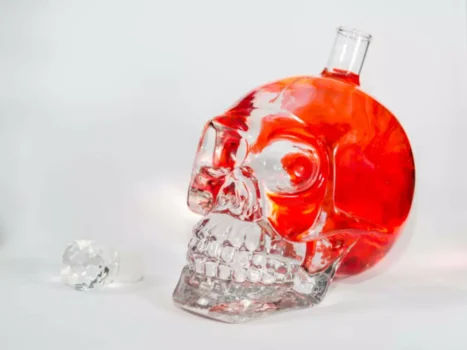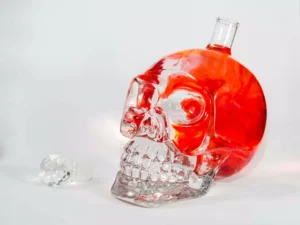
And that can affect the body in many negative ways, such as making you gain weight. Plenty of factors influence how damaging acetaldehyde is to the body, Wakeman says. The most obvious is the amount of alcohol consumed; a heavy drinker will be exposed to more acetaldehyde than a light drinker, leading to more damage. But even two people who drink the same amount may be affected differently, depending on their genes and other risk factors. And not so long ago there was general consensus that drinking in moderation also came with health advantages, including a reduced risk of cardiovascular disease and diabetes.
The risks outweigh any potential benefits

Despite his firm stance that evidence indicates drinking in any volume is “net bad” for health, averaged over a population, he explains each drink is likely equivalent to only a few minutes of lost life. “If you consistently have six drinks a week, it’s probably about two or three months of lost life expectancy,” he adds. At something like two drinks per week, “it’s a very small risk,” Stockwell says. Whether you’re pouring a round of drinks, savoring a glass of wine or enjoying a brew with close companions, drinking alcohol is so intertwined with our social and cultural rituals that it often goes unquestioned.
Is Alcohol Good for Your Health?
The recommendations and guidelines set forth by the government and health agencies for alcohol consumption are generally based on low to moderate intake. Here in the U.S. that means a maximum of one drink per day for women, and two per day for men. Drinking alcohol seems to change the way the body metabolizes estrogen, leading to higher levels of the hormone. This may translate to an increased risk of estrogen-related breast cancers. Researchers are still learning about exactly how alcohol affects hormones, according to the recent Surgeon General report.
Risks start from the first drop
However, moderate drinking may have benefits for brain health — especially among older adults. In August of 2018, two larger studies examined the impact of alcohol. The first one, published in The Lancet, included only people marijuana addiction who drank at least some alcohol.

These factors make women more susceptible to the effects of alcohol, and it takes smaller amounts to affect them. By contrast, another 2023 study found similar rates of death between nondrinkers and light to moderate drinkers. Current alcoholic beverage labels in the US warn of the risks of driving under the influence of alcohol, adverse effects on general health, and risks for a developing fetus — but there’s no mention of cancer.

- But most beers have a lower alcohol percentage compared to wine or hard drinks, which usually leads to drinking more of it.
- The main psychoactive ingredient in alcoholic beverages is ethanol.
- Drinking alcohol is a health risk regardless of the amount.
- In addition, alcohol may reduce the risk of one condition (such as cardiovascular disease) while increasing the risk of another (such as cancer).
- It may be hard to believe, but alcohol may help you live longer.
Well, that’s exactly the way that what they call the scope of task was presented to the National Academies by the USDA. So there were a number of specific health conditions for which there is interest on the impact of moderate alcohol consumption and those outcomes. The three lactation questions were what happens to postpartum weight gain in lactating women who consume alcohol? And then what’s the impact of alcohol on milk quantity and quality? And then what’s the impact on neuromuscular development of a breastfed infant from a woman who was consuming alcohol? So even though I say eight questions, they’re really only five.

Mounting evidence links alcohol with cancer. Defining a ”safe” amount of drinking is tricky — and controversial.
The debate still simmers today, with a lively back-and-forth over whether alcohol is good for you or bad for you. Just as we said, alcohol accelerates an adrenaline rush in an individual, while it may work in some case why is alcohol good for you giving you a happy high, many a times it can act differently. It can make you this agitated individual who is not worth meeting socially, picks a fight at the drop of a hat or makes one abusive and violent.
Excessive Alcohol Consumption Causes Hangovers
Beer has a similar number of calories as sugary soft drinks, ounce for ounce, whereas red wine has twice as much (28, 29, 30). Many people facing anxiety and depression drink intentionally to reduce stress and improve mood. While drinking may provide a few hours of relief, it may worsen your overall mental health and spark a vicious cycle (23, 24). While alcohol intake and depression seem to increase the risk of one another simultaneously, alcohol abuse may be the stronger causal factor (20, 21, 22). In heavy drinkers, binge drinking may cause your liver to become inflamed.